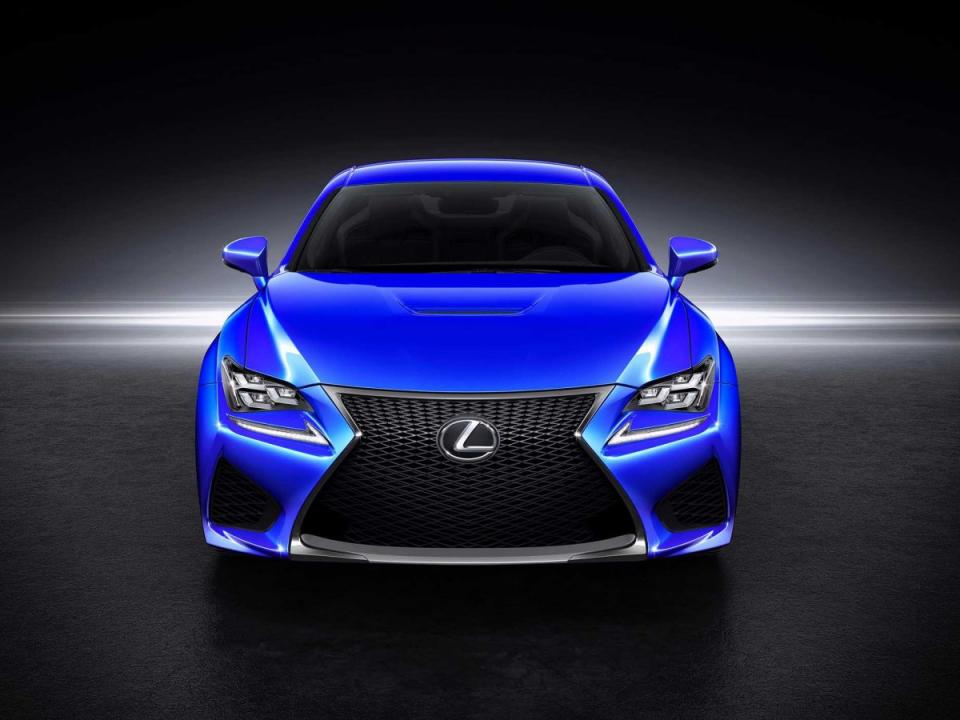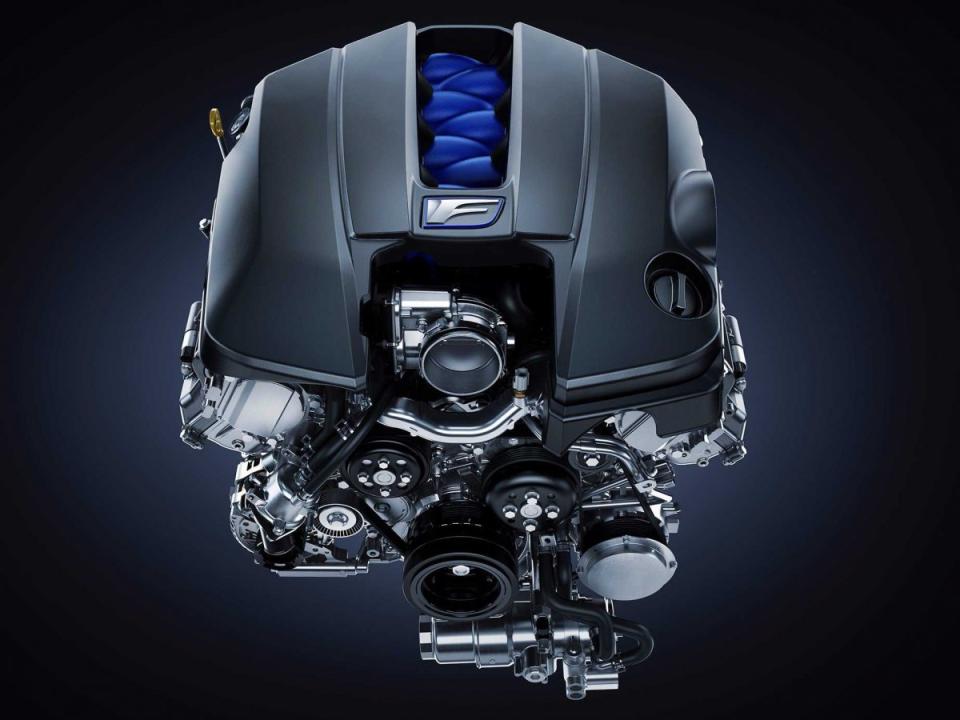The Lexus RC F has a lot going for it, but there was one thing that really bugged me

Since Lexus came on the scene 25 years ago, the Japanese luxury brand has crafted a sterling reputation for producing refined yet relatively docile cars.
Unfortunately, this means that Lexus has a boring image, although no shortage of repeat customers.
The Lexus RC F is supposed to change that. Our test car, painted in a tone called "ultrasonic blue mica," is the most aggressive and exciting Lexus since the short-lived LFA supercar and the ISF sports sedan, which was retired a few years back.
It has a 5.0-liter V8 that bellows intoxicatingly. It looks aggressive, even menacing. It's simply unlike any other car Lexus produces these days.
Outside
First, the outside. Lexus has been carrying on an inexplicable love affair with large front grilles. The brand's latest generation of cars has taken the company's "spindle" design to new levels of excess. The RC F is no exception. It's a polarizing feature, but for me, it works here.
Why? Because, for Lexus, cars such as the RC F are all about peacocking. The big grille might look out of place on a vehicle like as the RX crossover, here the objective is to go over the top. So that gaping spindle makes sense.
The rest of the bodywork is angular and dynamic. There are enough creases, curves, and gills to confuse military radar. This is a car that doesn't have much patience with flat surfaces.

Tucked below the rear bumper are the quad exhausts that serve as a signature element for Lexus "F" performance lineup (it's the brand's equivalent of BMW's "M" division). There's also a retractable spoiler that activates at 50 mph. Because why not? An active spoiler is de rigeur these days for cars in this category.
The RC F is far from what you would call "classically beautiful" – think Jaguar F-Type or an Aston Martin Vanquish – but it does make you look twice. By that criteria, it's a success, although its gets there via slightly unconventional means.
Inside
Now the inside. Lexus' interior designers were far less adventurous than their exterior counterparts — and we're completely cool with that. The RC line shares much of its interior with the Lexus IS sedan, which Business Insider reviewed last year. We loved the way the interior looked then, and we like it even more here.

The RC F's interior quality is textbook Lexus — although if your last Lexus was an easygoing sedan, some of the options might be bit jarring. The red leather seats, for example (our test car's were a more subdued tan). Regardless, they're baby-bottom soft and offer great lateral support when driving aggressively. The carbon fiber accents successfully add an extra hint of sportiness without becoming overblown or gaudy.
Although, the dash was a bit more plasticky than I would have liked to see in a $73,000 sports coupe, the petrochemical-derived interior trim doesn't diminish the luxurious aura of the car.
And the RC F's 835-watt, 17- speaker Mark Levinson sound system is fantastic, the best I've ever experienced in a car.

Thankfully, with the RC F, Lexus has abandoned its "puck"-style infotainment control system. In it place is a new trackpad-style setup. Although the puck worked fairly well, the new haptic trackpad is a significant improvement.
As you guide the onscreen cursor from icon to icon, the pad vibrates reassuringly beneath your fingertips. This makes on-the-fly-operation less of a chore.

That's all the good stuff about this car. Now the bad.
The bad
There's just one significant problem. At the end of the day, a high-performance sports car is defined by its engine. This is where RC F falls down. Sure, the free-revving V8 produces an impressive 467 horsepower and makes a truly enjoyable sound. But it stumbles where it should thrive — acceleration.
An engine of this type should deliver power and speed on demand. Blip the throttle, and the speed shall come. But with the RC F, it doesn't. At least not right away.
The RC F is is capable of 0-60mph runs in 4.4 seconds. But in actual driving, the car feels like its taking its time to serve up the speed you'd like it to provide. The 8-speed automatic transmission has a desire to go high, obviously to optimize fuel economy. But that means performance suffers.
You can somewhat remedy this by putting the car into one of its two sport modes and change gears yourself. But some might argue that the car should be able to live up to its billing. And modern automatic gearboxes are supposed to be smart enough to make effective use of a lot of horsepower.
None of this is helped by the RC F's weight. At more than 4,000 pounds, the car is notably heavier than its competitors from Jaguar and BMW.
With the RC F, it seems that Lexus tried to please multiple sets of customers at same time. The car looks aggressive and its exhaust roars in a way that would please someone searching for a high end sports GT (BMW 6-Series or Audi RS5). But it feels like Lexus may have sightly tempered the raw performance of the car to satisfy the more luxury minded clients the company is accustomed to dealing with.

At the end of the day, the RC F has a bothersome problem with its fundamentals. It looks good, sounds goods, but doesn't always come through when it matters.
Over time, as fun as the car is to look at, listen to, and ride in, this critical issue might bug you. When you spend over $70,000, you're buying a lot more than an engine and a transmission. But with this particular car, the ability of those components to satisfy your expectations of excitement and exhilaration is where the conversation begins and ends.
NOW WATCH: Here's what happens when you get bitten by a black widow
See Also:
How Elon Musk saved Tesla in just two weeks when Google was about to buy it
This new version of Google's self-driving car will hit the streets of Mountain View this summer
SEE ALSO: Porsche's incredible $100 million US headquarters is an amusement park for adults

 Yahoo Autos
Yahoo Autos 
